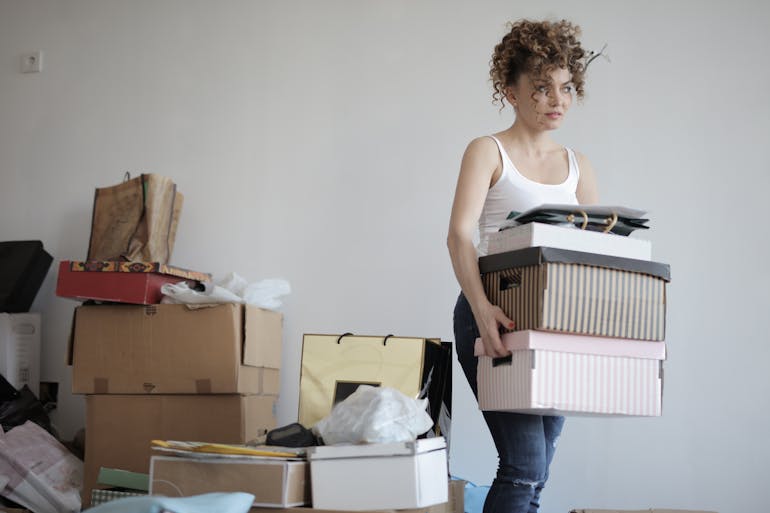Moving to Waldorf is a big step. People often pack their things, load the truck, and then pray nothing breaks. They hire moving companies DC area to handle their items. Sometimes accidents happen anyway. When moving, you can get compensation for damages if you know the proper steps. Each year, it is reported that the 7,000 complaints about household goods carriers. Many of these involve broken or lost items. This is frustrating. Nobody wants damaged furniture or electronics after a move. Yet it happens more than you think. Some folks give up. Others push for fair pay. You want to be one of the latter. This guide shows how to do that. Read on. Stay informed. Fight for what you deserve.
Understanding your rights as a customer
You have protections under federal law. There are clear rules for how movers must treat your goods. That includes safe loading, secure transport, and careful unloading. Many states in the U.S. also have specific laws. They cover claims when items end up broken. It is your right to expect your belongings to arrive in one piece. That said, your responsibilities matter too. You need to document the conditions before the move. Some people even label boxes by room. Others photograph each fragile item. This creates proof if something ends up damaged. It is smart to ask for a written contract. Then keep it in a safe spot. Movers must honor agreements. If they fail, contact movers Waldorf MD to learn about how they handle claims. They handle many jobs each month. They also follow standard claim procedures. Learn those steps. It gives you power.

Federal and state regulations on moving company liability
Laws protect your property by setting minimum liability rules. Every mover must disclose how you can get compensation for damages when moving, and the Federal Motor Carrier Safety Administration enforces these standards. If they violate regulations, file a complaint quickly because states have strict deadlines. Act fast, mark your calendar, and keep proof so you can hold them accountable.
Types of moving insurance and coverage
Movers must provide standard protection. This is called Released Value. It typically covers 60 cents per pound for damaged items. Released Value is free but often not enough to replace high-cost belongings. On the other hand, Full Value Protection offers better security. It requires movers to repair or replace damaged goods at their current market worth. This raises your moving cost a bit. But it can help you get compensation for damages when moving that actually matches your losses. It is a good option if you own expensive furniture or electronics. Read the fine print. Some coverage excludes very pricey or unusual pieces. If you want a broad scope, ask about add-ons. Companies like residential movers MD often explain these policy details in writing. That helps you decide which plan works best.

Third-party insurance – When to consider an external policy
Sometimes a mover’s plan is not enough. People with rare collections or antique furniture may want more coverage. That is when third-party insurance can help. It can fill gaps that standard coverage does not meet. For instance, you might own a piano worth thousands. But you fear standard coverage only pays pennies. A third-party policy can protect you from huge losses. It often covers full value or replacement costs. It can also include liability for items that are easily broken. Make sure to read every term. Some providers require documented proof of a high-value item’s original state. Others want receipts for every large purchase. Most families do not keep these on hand. So gather them before you buy a policy. This helps you file a smooth claim if something shatters.
Steps to take if your items are damaged
Inspect everything as soon as it arrives. That means opening boxes right away and checking fragile stuff first. You need to do this quickly so you can act if there are problems. Use your phone to snap photos. Show how the box looked and what the item looks like. Keep receipts in one folder for easy reference. Then file a claim. Contact the moving company. Fill out their official form if they have one. Include your photos and receipts. This strengthens your position. If you get no response, follow up. Call or email. Keep notes of each chat or message. These records help prove you tried to resolve the issue. Sometimes the company responds late. But do not let them stall past the deadline. Some federal guidelines require you to file within nine months. Mark your calendar.
What to do if the moving company refuses compensation
First, read your contract. Some people skip this step. That is bad. The contract outlines how the mover handles claims. It might limit or expand their liability in certain situations. If the company still refuses to pay, contact consumer protection agencies. You can also reach out to the Better Business Bureau. Some individuals speak with local movers MD to understand coverage terms and typical claim processes. They might help mediate the dispute. This at least puts the issue on record. State consumer offices can help too. Some states have small claims courts. That might be an option. Keep every email and letter. Keep photos of damages.

Consider legal action – When to escalate the matter
Lawsuits can be expensive. But they might be necessary for large claims. You should weigh the cost of legal fees against the value of your damaged items. Many attorneys offer free consultations. Ask about your odds of winning. If you have strong proof, a lawsuit might scare the mover into paying you. Courts can order them to compensate you fairly. They can also add extra damages if the mover acted recklessly. Before you sue, let the company know you plan to do it. Sometimes that spurs them to settle. This route takes time. It can take months or years. Keep a level head. Explore cheaper options first. But do not shy away if you have a rock-solid case.
Keeping yourself protected for future moves
Many learn too late that they did not prepare thoroughly. Clarify liability terms, read the entire contract, and keep a copy. Photograph and label each item, then store those images on a cloud service. Check complaint records, choose reputable movers, and maintain a list of each box’s contents.
Get compensation for damages when moving to a new home
Moving can be tough, but you can still recover if your belongings get damaged in Waldorf. Know your coverage options and document your items before the move. You can get compensation for damages when moving if you stand firm and file a proper claim. Keep paperwork safe, follow official channels, and demand fair treatment.


